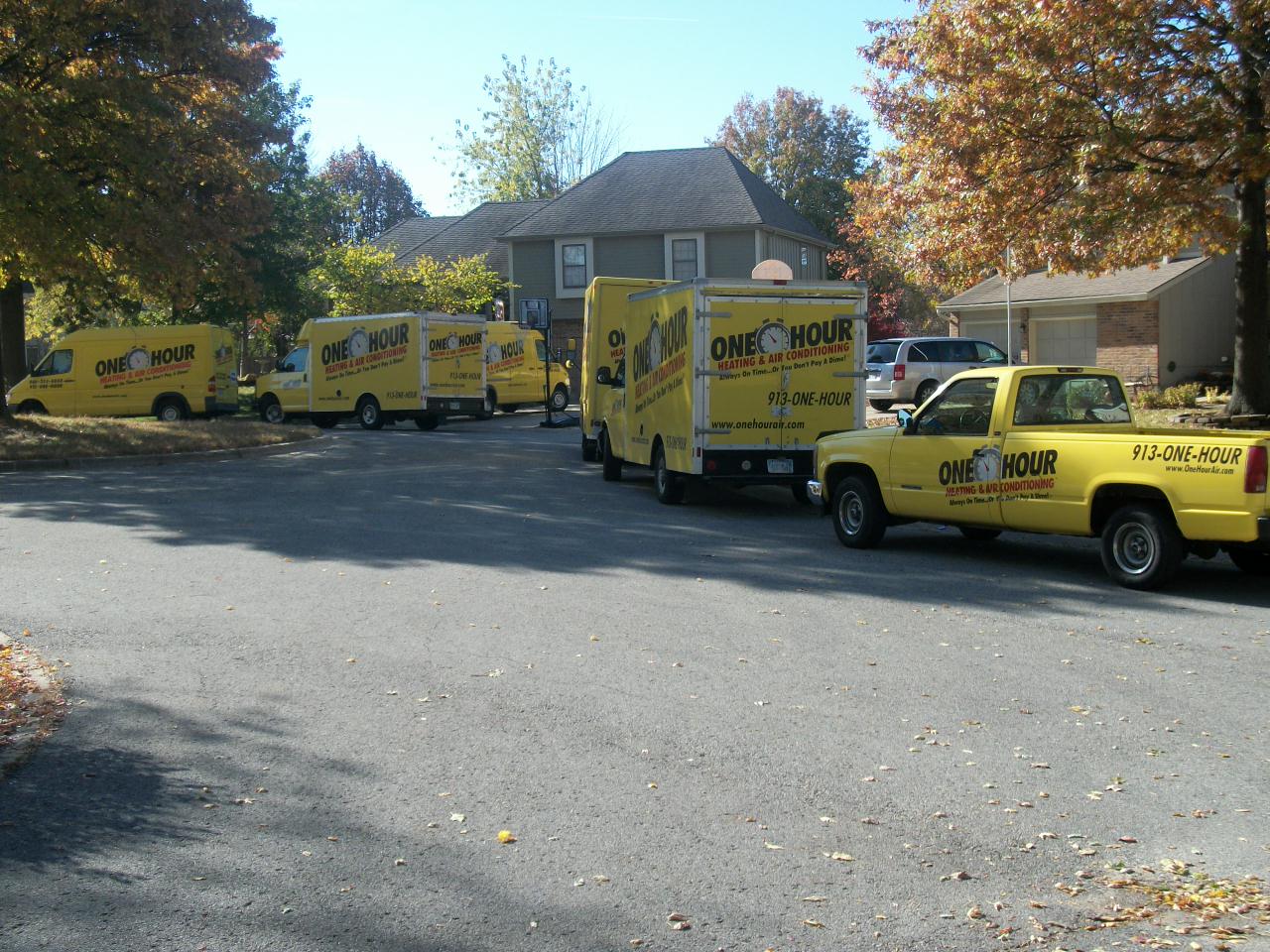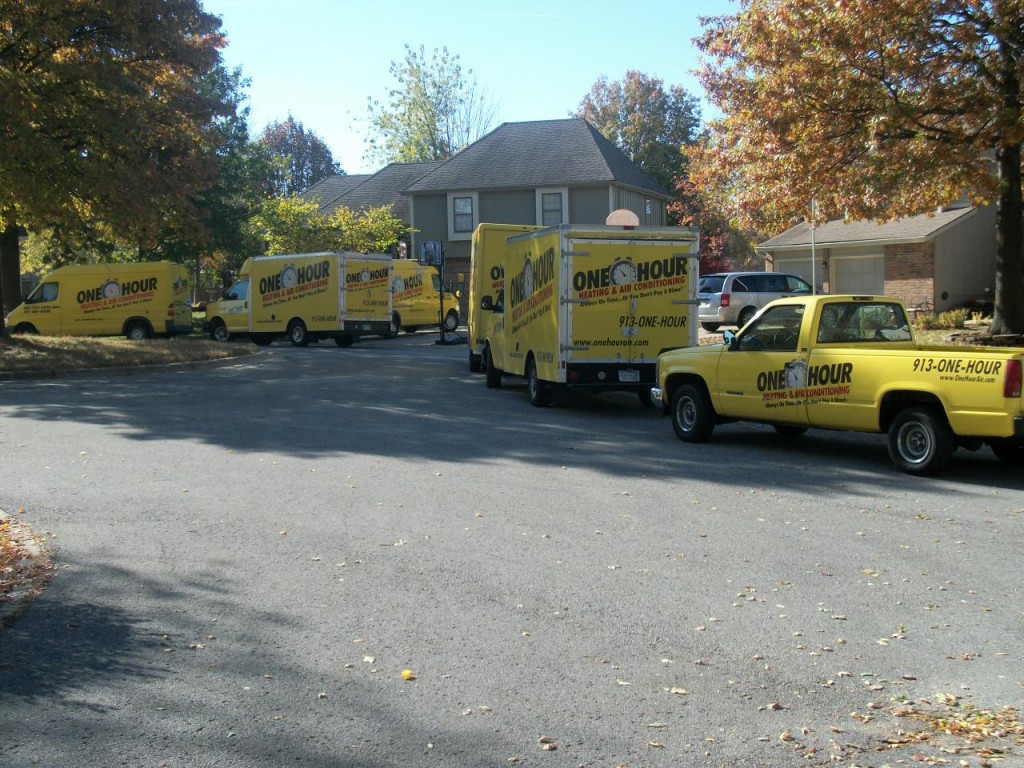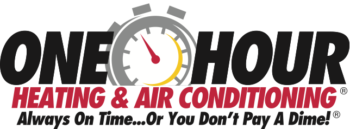Heating and cooling service or repairs are often needed, but seldom much fun. That’s why we hope these savings coupons from One Hour will help you feel just a little better. Simply print out a coupon and present it to your One Hour Heating and Air Conditioning Technician the next time you have a need. Or, refer a friend or family member who might have a need. They’ll owe you one! Call 913.829.1505 to schedule an appointment.
Call 913.829.1505 to schedule an appointment.
heating
Photo Caption Contest

 Ok who has the best caption for this picture? We’ll kick off with: “if those trucks were red, someone’s house is on fire.” Hint: there’s a $10 starbucks card in it for whichever one makes us laugh the most.
Ok who has the best caption for this picture? We’ll kick off with: “if those trucks were red, someone’s house is on fire.” Hint: there’s a $10 starbucks card in it for whichever one makes us laugh the most.
Results:
Sue D- One Hour Parking
Sara G – how many One Hour technicians does it take to install a lightbulb..er.. a heating system?
Kenneth K – I said I needed ‘someone’ to help at Kim Kardasian’s winter system check but this is ridiculous! – Winner! Congratulations Kenneth!
Donnie H – Our parking lot is being redone . So we had to park somewhere.
Lisa H – Practical Story Problems for 4th grade Math: If it takes one technician from OHH&AC one hour to fix a broken A/C, how quickly can they fix it if they call in 5 of their buddies? And most importantly, will they finish in time for the Chiefs game kickoff?
Mary F – My wife made pie! Come on over for a slice! Said one OHH&AC employee to another, Word travels fast! Must be Some PIE!
Gayle A – One Hour will fix the problem no matter how big!
Don W – Those people better be REALLY comfortable AND SOON!
Richard D – Game time! Football and friends
Anne O – The word is out in our neighborhood about One Hour’s fast and reliable service!
Michael D – Sorry about this but we are only allowed to work 1 hour per truck at a time and this job is going to take at least 6 hours.
Meghan C – Excellent customer service– one benefit of keeping your french maid costume on a little after Halloween.
Frequently Asked Questions

How often should I replace the filter?
There’s no one-size-fits-all answer. The frequency of filter changes is driven by how much your heating and air conditioning system operates, which is also driven by your individual climate.
Start by checking the system’s filters at least once a month. Hold the used filter up to the light and compare it to a clean “spare.” When light is obscured by captured dust and dirt particles, the old filter should be changed. Keep a record for one year and then replace the filter on that basis. At a minimum, it is always a good idea to change filters at the start of the heating and cooling seasons and then in between according to your need. Also, it is a good idea to have your heating and air system checked at the beginning of heating and cooling season to insure proper operation.
Why should I replace my working furnace or air conditioner?
Although your present furnace or air conditioner may be working, if it is more than 12 years old you should consider replacing it with a new high efficiency system. A new heating and air conditioning system could save up to 50 percent on energy costs, and save you money in the long run on heating repairs. While these products save you money on your utility bills, they also offer a better degree of comfort within your home.
Why can’t you add coolant to my system without checking for a leak or repairing an exiting leak?
Since July 1, 1992 it is illegal to release refrigerants into the atmosphere, either intentional or accidental, because they can cause severe damage to the ozone layer. When refrigerants such as Chlorofluorocarbon’s (CFCs) are removed, they should be recycled to clean out any contaminants and returned to a usable condition.
How does the Clean Air Act impact heating and cooling systems?
The portion of the Clean Air Act that applies to the Heating, Ventilating and Air Conditioning (HVAC) industry encourages the development of ozone-friendly substitutes for chemicals that contain ozone destroying chlorine, which are called hydrochlorofluorocarbons (HCFCs). The chemical refrigerant of choice for more than four decades, referred to as R-22, is in the HCFC category. R-22 is widely used in heat pumps and AC condensing units to heat and cool homes. Today, a refrigerant called R-410A is used because of its ozone-friendly properties.
